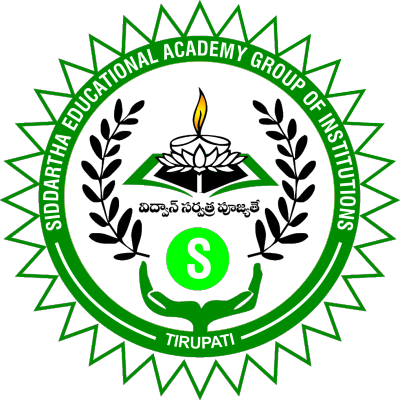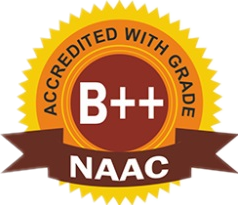Siddhartha Educational Academy
Civil- Structural Engineering
CIVIL ENGINEERING is one of the oldest branches of engineering that enhance the standard of living of a nation through infrastructural development. Civil engineering deals with the planning, design, construction, operation, maintenance of infrastructure elements such as buildings, highways, bridges, railroads, tunnels, dams, and airports. Civil engineering also deals with the research for the development of innovative technologies that aid in economical and eco-friendly infrastructural development. Civil engineering also deals with solutions to problems involving drinking water supply, sanitation, irrigation & flood control, waste management, and the protection of the environment. A civil engineer not only requires a high standard of engineering knowledge but also supervisory and administrative skills. Civil Engineers plan, design, and supervise the construction of facilities essential to satisfy the needs of modern life.
Department of Civil Engineering was established in 2009 with an intake of 60 in UG and Structural engineering in PG with the intake of 24 from 2012. It consists of well-qualified, experienced, and dedicated faculty and committed supporting staff. The departmental major activities include teaching and research, and providing consultancy services to various organizations in the area of Civil Engineering. The faculty continues to strive hard by exploring new frontiers of knowledge, imparting the latest technical knowledge to the students, and conducting high-quality research. The faculty also renders technical advice on live engineering problems to various Government and Private Sector companies throughout the country. The department has produced several engineers who have been working under various government and private organizations.
VISION :
To become and stay as a center of excellence in the field of Civil Engineering and contribute for the building up of a better living environment, infrastructural facilities and the protection of natural resources.
MISSION :
M1: To contribute to the society by successfully training high quality Civil Engineering graduates.
M2: To impart high quality education to enable students face challenges in the fields of Civil Engineering.
M3: To provide facilities, infrastructure, environment to develop the spirit of innovation, creativity, and research among students and faculty.
M4: To inculcate ethical, moral values and lifelong learning skills in students to address the societal needs.
M5: To transform the students as leaders in Civil Engineering to achieve professional excellence in the challenging world.
| Program Educational Objectives (PEOs) | |
| PEO1 | To provide students with advanced knowledge in the field of structural engineering. |
| PEO2 | To develop critical thinking and problem solving skills. |
| PEO3 | To enhance communication and interpersonal skills, encourage research and innovation. |
| PEO4 | To prepare students for successful careers in the field |
| Program Specific Outcomes (PSOs) | |
| PSO1 | Analyse and design reinforced concrete structures and steel structures as per the standard design of codes. |
| PSO2 |
Design and analyze complex structures using modern engineering tools and software platforms |
| PSO3 |
Conduct research in emerging areas of structural engineering |
| Program Outcomes (POs) | |
| PO1 | Engineering Knowledge: Apply knowledge of mathematics, science, engineering fundamentals, and an engineering specialization to the solution of complex engineering problems. |
| PO2 | Problem analysis: Identify, formulate, review research literature and analyze complex engineering problems reaching substantiated conclusions using first principles of mathematics, natural sciences, and engineering sciences. |
| PO3 | Design/development of solutions: Design solutions for complex engineering problems and design system components or processes that meet the specified needs with appropriate consideration for the public health and safety, and the cultural, societal, and environmental considerations. |
| PO4 | Conduct investigations of complex problems: Use research-based knowledge and research methods including design of experiments, analysis and interpretation of data, and synthesis of the information to provide valid conclusions |
| PO5 | Modern tool usage: Create, select, and apply appropriate techniques, resources, and modern engineering and IT tools including prediction and modelling to complex engineering activities with an understanding of the limitations. |
| PO6 | The engineer and society: Apply reasoning informed by the contextual knowledge to assess societal, health, safety, legal and cultural issues and the consequent responsibilities relevant to the professional engineering practice. |
| PO7 | Environment and sustainability: Understand the impact of the professional engineering solutions in societal and environmental contexts, and demonstrate the knowledge of, and need for sustainable development. |
| PO8 | Ethics: Apply ethical principles and commit to professional ethics and responsibilities and norms of the engineering practice. |
| PO9 | Individual and team work: Function effectively as an individual, and as a member or leader in diverse teams, and in multidisciplinary settings. |
| PO10 | Communication: Communicate effectively on complex engineering activities with the engineering community and with society at large, such as, being able to comprehend and write effective reports and design documentation, make effective presentations, and give and receive clear instructions. |
| PO11 | Project management and finance: Demonstrate knowledge and understanding of the engineering and management principles and apply these to one’s own work, as a member and leader in a team, to manage projects and in multidisciplinary environments. |
| PO12 | Life-long learning: Recognize the need for, and have the preparation and ability to engage in independent and life-long learning in the broadest context of technological change. |
Update Soon…
Admissions
For more details on admissions and seat availability ..contact here

